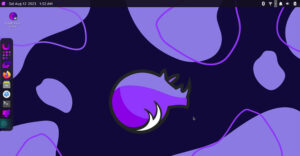
Sun said yesterday it would modify its licenses to make Java source code access more open, but analysts said it’s still miles away from the open-source status that the developer community is calling for.
Sun is introducing two licenses for using the Java 2 Standard Edition (J2SE), the software for building and running Java programs on a PC, as part of a program code-named “Project Peabody.”
The company’s goal is to give developers more involvement in J2SE. But Anne Thomas Manes, vice president and research director Burton Group, told LinuxInsider that the latest Java licensing announcements will likely “annoy” the Free/Libre/Open Source Software (FLOSS) community.
“Sun is refusing to open-source Java because it says it wants to ensure compatibility. The company doesn’t want people to go forking the code,” Manes said. “I reject that assertion. Sun owns the copyright to the name Java, and nothing can be called Java unless Sun lets you call it Java.”
Smoothing the Process
Graham Hamilton, a Sun vice president and fellow, has told reporters that the changes are intended to smooth out the process by which Java software companies and business customers view source code and contribute changes.
Manes said the Java Internal Use License (JIUL) may help accomplish that mission, despite the fact that it’s not truly open-source. The license allows companies to make changes to Java for its own internal purposes so long as developers don’t redistribute the altered code.
“JIUL alleviates a lot of the issues that people have with the fact that Java is not open-source,” Manes said. “Sometimes you just need to look at the code and figure out why something is not working the way you want it to. Sometimes you need to be able to make a change because you’ve got some very specific requirement.”
Fixing Bugs
Sun is also hoping that developers will contribute fixes and improvements back to Sun. But how many developers are really interested in doing free code development for Sun?
“That’s an interesting question,” Manes said. “Some people may want to do it just because they really like Java and therefore they want to support Java. But the open-source community is still going to be leery of it because it’s not really open-source.”
A second license from Sun, called the Java Distributed License, is designed to make it easier for Java software vendors to have a contract with the company. Analysts said it is essentially the same as Sun’s current commercial license.
Forking the Code
Sun is also introducing a Research License that Manes said creates a scenario similar to open-source — if it is used in a research setting. But it still does not allow developers to fork the code, and that is the sticking point. “Forking” occurs when in the development process a program creates a copy of itself and develops along two or more separate branches. This is said to allow developers more room for experimentation.
“Sun should have open-sourced Java five years ago, if not longer, and they just continue to stall and push,” Manes said. “JIUL is a little better than what Microsoft has done with its Shared Source License. It’s more open, but it’s still not open-source and it should be. It’s a real pain that they’ve refused to make this open.”
Sun could not immediately be reached for comment.




















































